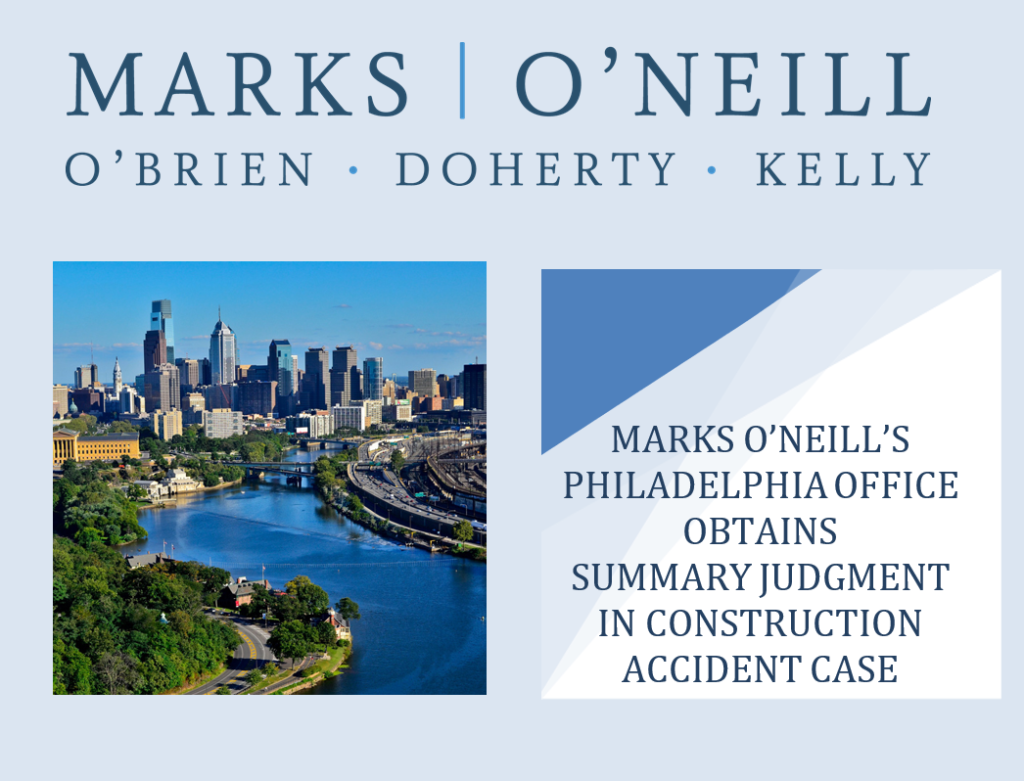
MOODK Philadelphia attorneys, J. Mark Pecci, II and Casey G. McCurdy, obtained summary judgment for their client, an asbestos abatement subcontractor, in a tragic construction accident which resulted in significant injuries to Plaintiff’s left knee and leg. At the time of the injury, Plaintiff was employed by MOODK’s client, which was hired by a demolition contractor to perform asbestos abatement work at the jobsite. Plaintiff alleged that the demolition contractor left piles of debris around the jobsite which caused him to trip, fall and sustain injuries. Plaintiff further alleged that he had previously complained of the hazardous conditions created by the demolition contractor prior to the accident.
MOODK’s client was ultimately joined to the matter by the demolition contractor which sought contractual defense, contribution and indemnity from the client based upon the indemnity provision of the subcontract agreement. Following discovery, Attorneys Pecci, II and McCurdy moved for summary judgment arguing that the demolition contractor’s claims were barred by the Pennsylvania Workers’ Compensation Act, because Plaintiff was the client’s employee at the time of his alleged injury and the indemnity provision at issue lacked the necessary language waiving such protection. Specifically, the MOODK attorneys argued that the indemnification provision at issue was too broad and needed to contain express language indicating that its client would be held liable in indemnification for injuries to its own employees caused by the negligence of the demolition contractor. The attorneys argued that because there was no such express language waiving their client’s Workers’ Compensation immunity, the demolition contractor’s claims were barred. Ultimately, the Court agreed with the attorneys’ reasoning and dismissed all claims against their client, with prejudice.
